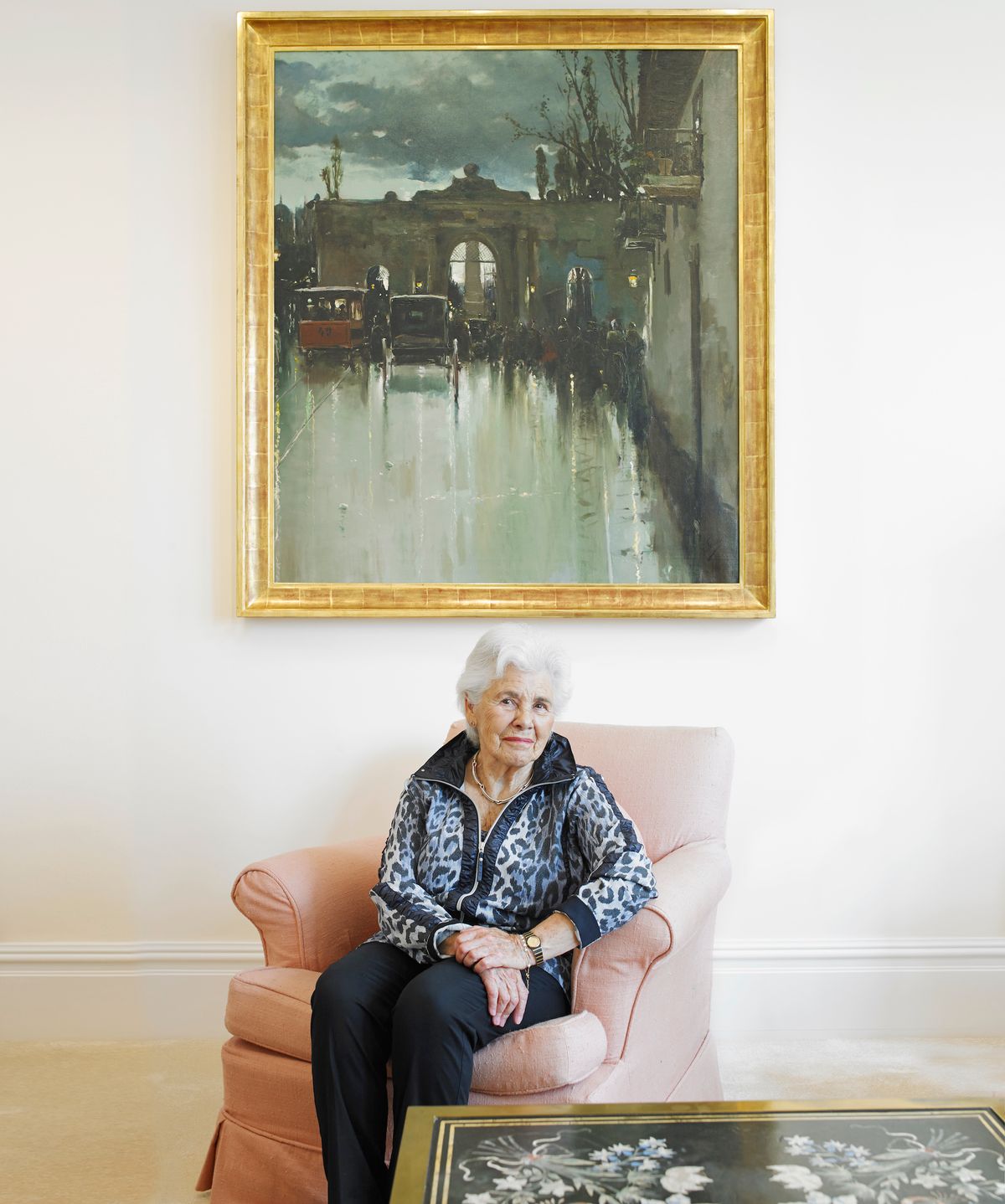Delfina Entrecanales, the celebrated Spanish-born, London-based arts patron who founded first the Delfina Studio Trust in 1988 and later the Delfina Foundation in 2007, has died at 94. Entrecanales’s foundations together supported nearly a thousand artists, many of whom went on to find great success, and more than a dozen of whom were either nominated for or awarded the Turner Prize.
Born in southern Spain in 1927, Entrecanales’s childhood was shaped partly by the Spanish Civil War. “My father’s family wasn’t political at all, but my mother’s was very left wing. I had an uncle who was a general in the Republican army. Another who was an undersecretary of state, another an ambassador,” she told the Financial Times in 2013. A number of her family members were in exile during the war, but her father, a highly successful businessman, remained in the country. “My father said: ‘Not even Franco is going to get me out of here.’ But he used to go to Paris with enormous suitcases of cash to give to all the left wing [exiles],” she told FT. Not wanting his daughter to grow up under the regime, however, he sent Entrecanales to live in Oxford to learn English. She remained in the UK after meeting the man who would become her first husband, and the couple had four children together.
In 1988, at 62 years old, Entrecanales founded the Delfina Studio Trust, which offered free and subsidised spaces for young artists to live and work. In 1992, Modern Painters ran a profile on her titled: “Delfina, Latter-Day Medici”.
"My time at Delfina Studios was the most fulfilling and exciting time of my artistic life," says Turner Prize-winning sculptor Mark Wallinger, a resident in 1996-2001 and 2003. "She was the most generous and uncompromising person who by the force of her personality and presence drove us all to excel but also to revel in a collegial atmosphere that was utterly special, enabling us all to flourish as artists and as people. I feel blessed to have known Delfina. There are a precious few people in life for whom one has such a rapport, and who encourage and inspire you to raise your game."
Delfina Studios closed in 2006 and, at age 80, Entrecanales founded the Delfina Foundation the following year. The foundation, which is still in operation, is a non-profit “dedicated to facilitating artistic exchange and developing creative practice through residencies, partnerships and public programming”, per its mission statement. Offering an ever-changing and largely thematic residency program for artists, writers and curators, the foundation continues to offer individuals the time and space to create and collaborate.
"She was ever bold, well into her nineties, and we all learned from her," says Arts Council England chair and former Tate director Nicholas Serota. "From the outset, it was evident that she was an unusual patron, respecting artists, wanting nothing in return but with an acute eye and judge of character that resulted in her giving support an astonishing number of artists who subsequently, and partly thanks to her encouragement, became successful."
Entrecanales famously did not accept gifts of artworks and had little interest in collecting; seeing her mission instead as facilitating art and community. “I don’t collect art, I collect artists,” she told the BBC in 2015. “I never wanted to collect very much, at home there were [already] so many paintings” she said, referring presumably to the works of art in her home that she had inherited from her father, such as pieces by the Spanish painter Joaquín Sorolla. “[The artists] come here, they will remember that I did care, and they connect with me,” she said. “That’s my payment.” When asked what she thought of ‘the art world’, Entrecanales replied, “I don’t want to say it’s full of shit, but it is,” adding “here [at the Delfina Foundation] you cannot be very important, because nobody is going to take any note”.
"A sailor mouth with little reverence for authority, I recall her walking to the foundation to check in with the artists, to tidy the kitchen, even clean the heaping ashtrays and to make sure we are eating well," says Abbas Akhavan, a Delfina Foundation artist-in-residence in 2011 and 2012. "Over the years and many visits, Delfina told a lot of stories about history, sex and art."
“The opportunities she provided both in space and time are uncommon, notably her insistence that we sit down to eat together every day, was instrumental in building an extended ‘family’ network of which I still lean into," says artist Anya Gallaccio. "She leaves a sizeable hole which belies her modesty and lack of attention on herself."


